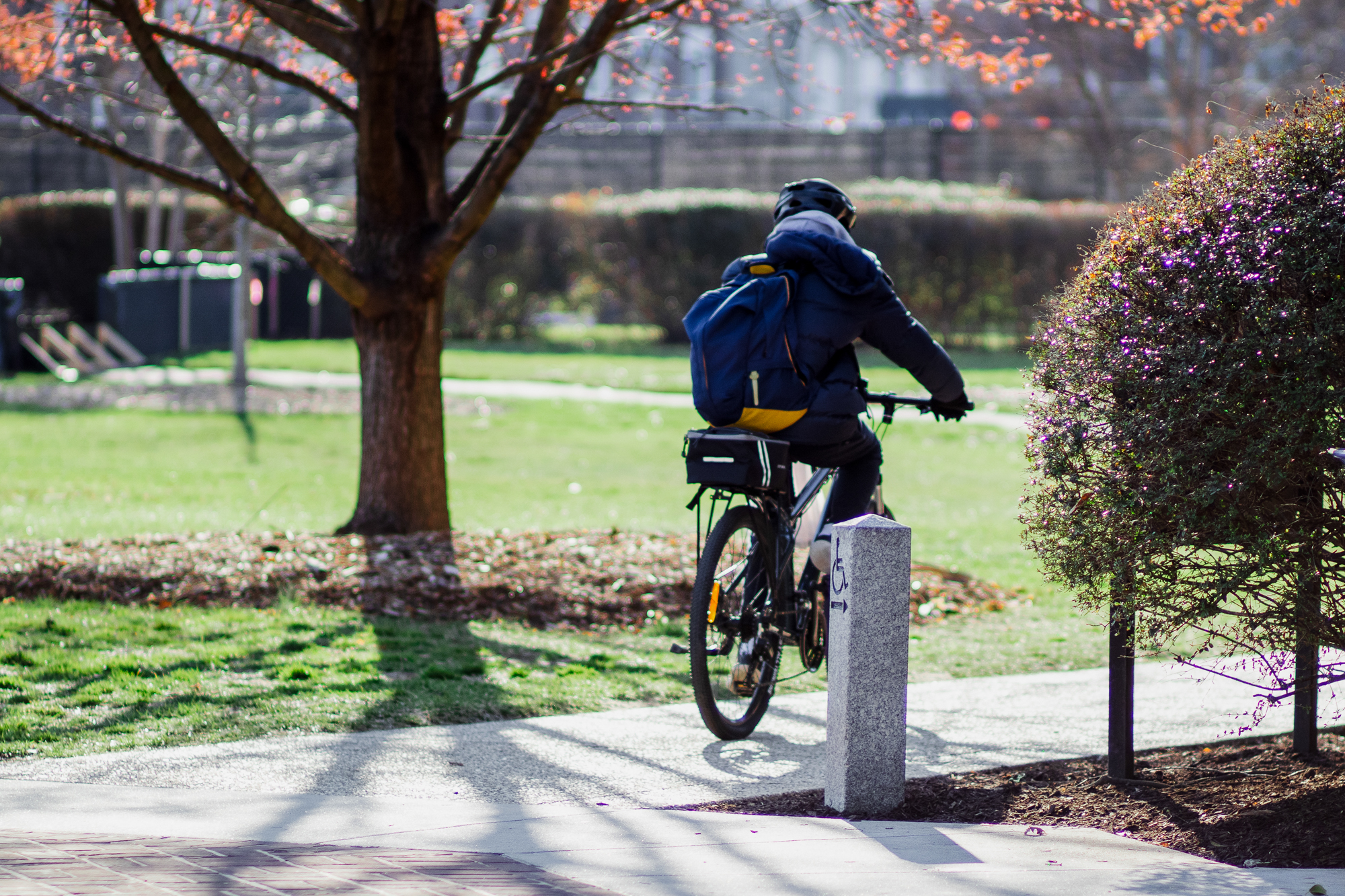The Maryland Department of Transportation awarded a grant to the University of Maryland to conduct a study to evaluate the bike lane feasibility on parts of the campus.
The study is an effort to improve micromobility infrastructure through a more comprehensive bike lane system on the campus, and comes amid an increased focus on micromobility. The study is expected to be completed in 2024, but bike advocates say faster solutions are necessary.
The study will supplement an already planned 10-foot-wide bike lane adjacent to the Purple Line. This university’s transportation services department and facilities management have partnered on the project, and the goal is to study feasibility and determine other productive locations for bike lanes on the campus.
[Capital Bikeshare station to come to College Park]
The grant will fund a consultant team of transportation infrastructure experts. The university did not disclose the grant’s value.
“Things that sound more simple, like adding bike lanes … are complicated endeavors,” university Vice President and Chief Administrative Officer Carlo Colella, who spearheads a team working to address micromobility issues, told The Diamondback Feb. 15.
Members of Terps for Bike Lanes — a student organization that campaigns for safer micromobility infrastructure — said more can be done to speed up the process to create bike infrastructure. Pop-up bike lanes, which act as temporary bike lanes, could be a fast solution that immediately addresses safety concerns, John Evans, a physics graduate student and data analysis director for Terps for Bike Lanes, said.
“The fact that they aren’t doing [pop-up bike lanes] is a very clear sign that they’re not doing enough,” Evans said.
This university launched “Safety Starts with You,” a campaign to increase awareness about micromobility safety, on Feb. 6. Signs and road markings were placed throughout the campus, reminding riders to dismount vehicles and walk on sidewalks.
[New micromobility campaign raises concerns about campus road safety]
Terps for Bike Lanes responded with an open letter critiquing the campaign for placing the safety burden on the community when the campus lacks bike lanes. The campaign does not reflect the wants of students or prioritize effective safety strategies, Terps for Bike Lanes wrote in the letter.
Dannielle Glaros, this university’s assistant vice president and chief of staff, responded to Terps for Bike Lanes on behalf of Colella, informing them of the newly funded study. Glaros also noted that construction causing delays to improved micromobility infrastructure is a worthwhile investment because the Purple Line will make the campus safer for micromobility vehicles and pedestrians in the long run.
“A focus on bike lanes sidesteps the main purpose for the Purple Line itself,” Glaros wrote in the letter.
With bike lanes on the horizon, micromobility riders and pedestrians continue to have safety concerns, but they hope new infrastructure will ultimately benefit riders.
“I’m excited for the prospect that future students will have safe transportation infrastructure on campus,” Evans said.



